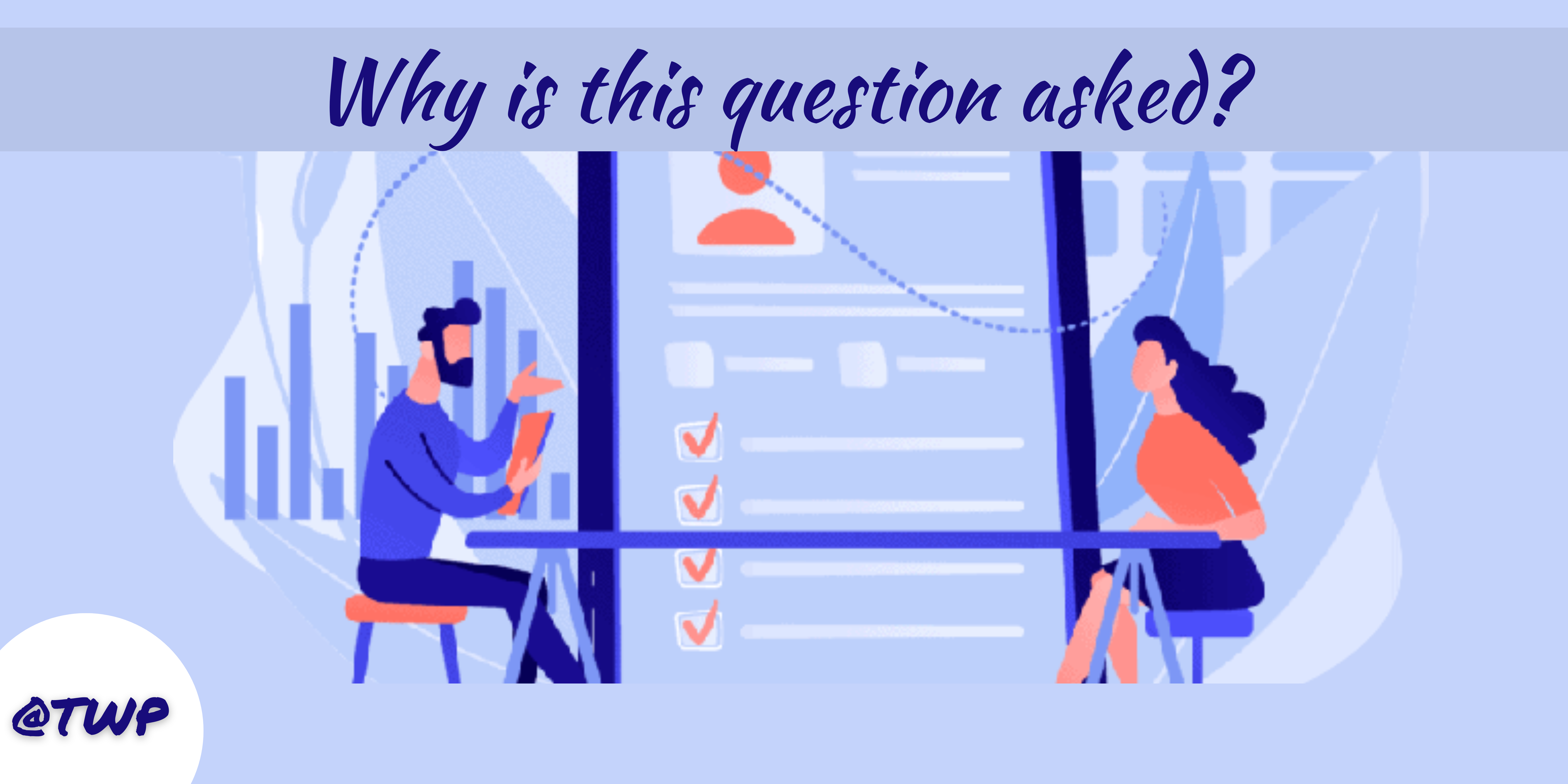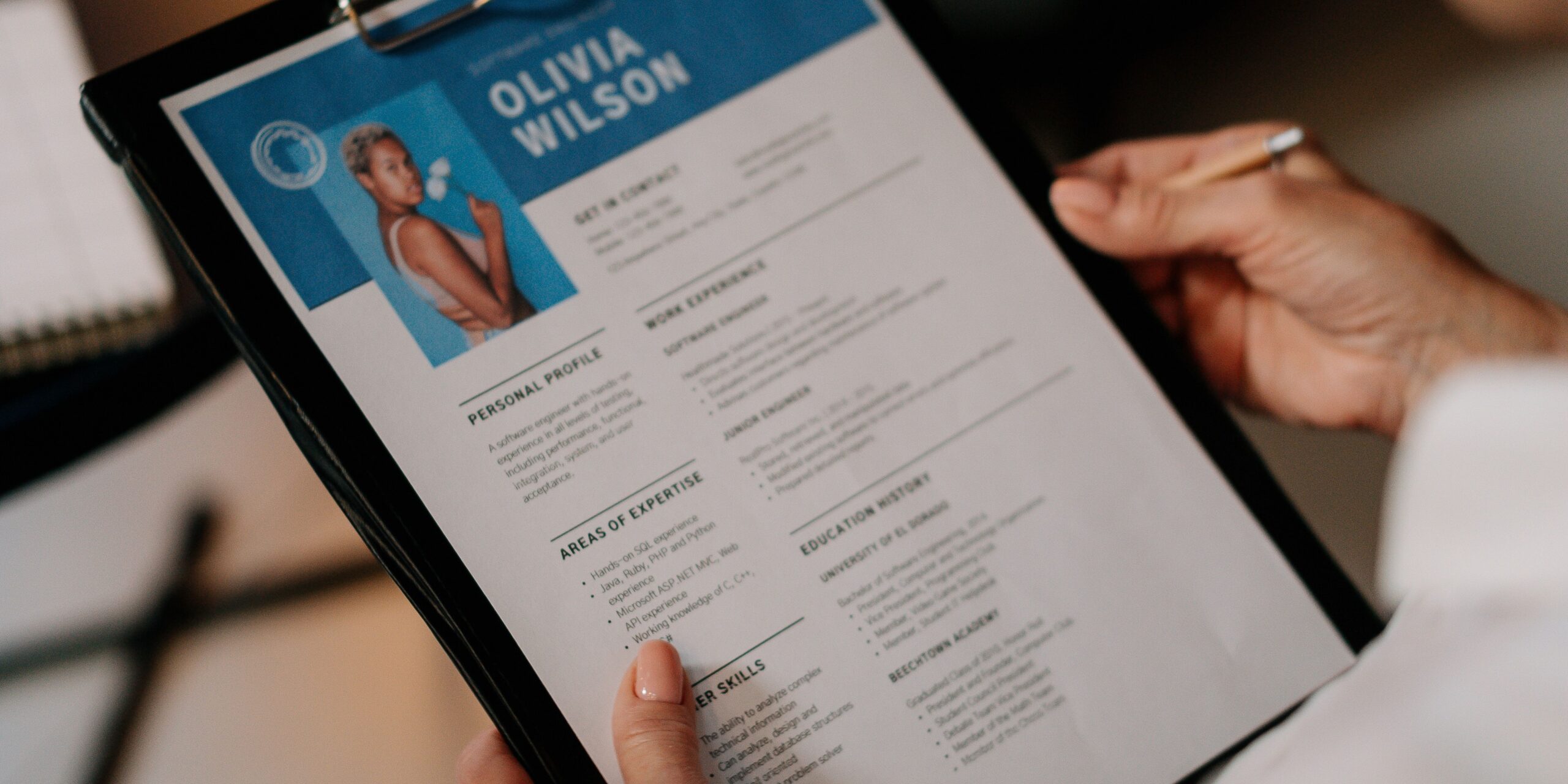“NO, I don’t have any inquiries.” That’s the first thing that strikes our mind as soon as we read or hear “Do you have any questions for me?”. Unlikely this is the most common question to be asked at the ends of interviews. And to my concern, you’ve answered it inaccurately and you missed a golden chance to learn about the company or the company culture. You could assume it’s simply a politeness inquiry, but that’s not the case! This question may be asked out of courtesy, but the importance of this question in an interview is just equivalent to any other question.
With this question, the interviewer is assessing your participation in the interview as well as your care and devotion to your work and company. However, you should not be anxious about this question. Because it may influence your interview, but not in such a way that you will be selected or rejected only on the basis of your response. Instead of thinking about this specific question, all you need to do is keep steel nerves and some mental presence.
But, as a member of The Writing Paradigm family, how can we forgo any opportunity for you to get a step closer to your ideal job? So, all you have to do is keep reading till the conclusion. In this article, I’ll walk you through the following standouts:
The significance of question during a job interview
The purpose of asking questions during a job interview is to demonstrate to the interviewer that you have done your study, are interested in the position, and have thoroughly examined the job description, the organization, and the interviewer. You can prevent potential red flags by doing this.

Prioritizing asking questions might also make you stand out from other applicants. This offers the interviewer a basic notion of how much consideration you’ve put into the position, its day-to-day duties, and your potential contribution to the organization. Asking questions can also help you learn more about the company or organization. And you shouldn’t pass up the chance to get to know the organization, its culture, your job, and the team you’ll be working with. Additionally, you ought to interview the organization just as thoroughly as they should interview you. You may get a good idea of what it will be like to work there and, more significantly, whether you will love it by asking questions about the team, the corporate culture, the most significant obstacles, and employee experience. Nothing is worse than taking a new job only to discover that you don’t fit in.
Finally, insightful questions bring the interview to a successful conclusion. By asking thoughtful questions, you may break up the interviewer’s routine and prove why you’re the greatest applicant. Because of the peak-end rule, a psychological heuristic, it’s crucial to close the interview positively. People mostly evaluate events based on how they feel at the beginning and finish. We often remember events better at the start and finish because of main and recency biases.
Why does the interviewer ask, “Do you have any questions for me?”
The question do you have any questions for me is asked by employers for various reasons, including the fact that they want to assess your commitment to the position and level of preparation. Hiring managers are well aware that the ideal applicant conducts an equally thorough interview with the organization. Additionally, it gives them a glimpse into your personality, and how much you care about the environment or the people you’ll be working with.

Knowing whether or not you were listening to the interview or only concerned with making your point loudly is another important consideration. And trust me, it’s a warning sign for you guys. If you don’t have any authentic questions, don’t make any of the pointers they were anticipating, or in the worst scenario, didn’t have a single query at all, it shows you lacked homework.
In contrast, if you make specific inquiries about the company’s culture, mission, values, goods, or rivals, they will be aware that you did your homework before the interview. They will thus have a positive impact of yours on the hiring managers.
Best questions to ask at the end of an interview
This kind of question is our favorite since it demonstrates to the interviewer, hiring manager, or human resources department that you have already put some thought into how you will perform in the position. These might be really well-thought-out questions, and in addition to wowing the interviewer, you’ll discover useful, individualized details about what the work entails, with you, particularly in it.

1. About your specific role
a. Could you elaborate on the duties you have on a daily basis? What is an average day like? The information in a job description is limited. This inquiry enables you to comprehend how you would use your free time.
b. What are the major obstacles I’ll have to overcome in this position? This question enables you to determine whether your personality, background, and talents are a suitable fit for the post.
c. What is the single most crucial sign of success in this role? Clear focus may speed up onboarding and help you achieve immediate results.
d. What are your immediate and long-term objectives for this role? Knowing what you need to do immediately helps you provide value more quickly, and knowing what you need to concentrate on in the long run enables you to see where you need to go.
e. What kind of career path is there at this firm for someone in this position? Inquiring about the company’s career path is an excellent method to demonstrate that you’re interested in developing your career there rather than utilizing it as a stepping stone.
2. About you
a. Have I addressed all of your inquiries? Ask the interviewer what you haven’t covered in more detail if they say no.
b. Do I lack any essential skills or experience? The response will probably be “yes” because no applicant can check off all the boxes, but you might be able to utilize this question to highlight similar skills or experiences you have.
c. Do you need to know anything else about me? It’s okay to ask after a few thoughtful inquiries, but don’t ask it immediately away since it may look like you’re dodging their inquiry.
d. Are there any steps I can take to increase my chances of landing a job? Always ask this since there could be something you didn’t think of that will help you get the job.
3. About professional development
a. Is there a fund set out for my future studies? Whether upgrading your skills is important to you, it’s a good idea to find out if there will be funding available to assist your study once you land a job.
b. Do you often employ outside talent or promote from within? You may learn more about the company culture and whether they look outside the organization or promote junior staff by asking this question.
c. What is the most recent employee doing now? You presumably want to know if the individual who had the position previously was promoted or let go.
d. What are the chances for development and growth? If you’re interested in learning how you may develop and improve in your profession based on taking.
e. Do you and the organization encourage internal lateral movement? It might be difficult to ask about lateral movements. Avoid giving the interviewer the impression that you’re utilizing them to acquire the job. It’s great to be open and honest if you are.
4. About the company
a. What is the company’s long-term plan? You may learn a lot about the organization and its future intentions by asking this question. It may be a symptom of bad management if the interviewer is unable to provide a clear response to this question.
b. Does your product fit the market? Only startups should ask this question, but it’s still useful because various talents are required before and after the product-market fit.
c. Could you kindly elaborate on the expansion ambitions and corporate strategy you mentioned? A well-run business will be able to respond to inquiries regarding its long-term goals and present expansion strategies.
d. What would you say about the management style of the company? It’s critical to understand the management style of a company before joining in order to determine whether you are a good fit.
e. What is the biggest hurdle facing the organization? Working on the largest difficulty facing the organization is an excellent approach to develop in your career.
5. About your team
a. How many team members are there? If you are concerned about the size of the team you will be joining, it is important to ask.
b. What equipment and software does the team use? Check to see whether the organization is employing any tools or technologies that you particularly enjoy using. If so, it’s a great method to differentiate yourself from the competition.
c. What are the histories of the founders? generally only necessary if you work for a startup or founder-led business, but vital if you do.
6. About interviewer’s experience in company
a. What about working here do you like the most? To better understand the positive aspects of the business and the reasons the interviewer enjoys working there, ask individuals what they appreciate.
b. Why did you decide to work here? Understanding why employees chose to work for the organization is usually beneficial.
c. Do you believe I’ll blend in well with the business? It’s vital to obtain a sense of the corporate culture to determine whether or not you would fit there.
d. What about working for this company do you find most difficult? An excellent way to delve deep into any potential difficulties the business might not want to discuss during the interview process.
e. What would you say about the company culture? Employee descriptions of the organization’s culture may differ from what the company itself says about it. Getting a straight answer from your interviewer is frequently preferable.
f. What duties do you have on a daily basis, and how do you see us collaborating? Knowing how your possible manager prefers to collaborate with others can help you determine whether you would be a good fit.
7. About the next steps
a. What will happen after that? Learn to predict potential future events. Will you get more chances to get to know the group?
b. Will there be further interviews? Discover the truth, then adjust your expectations.
c. What is the timetable for the following actions? Being ghosted after an interview is the worst feeling ever. Knowing when to write your follow-up email if you haven’t heard back can be made easier by being aware of the timeframe for the subsequent stages.
d. If you were to hire me, when would you like me to start? To let your present employer know you’re leaving, you’ll need to know how much notice to provide and whether you can start as soon as they’d want.
Questions to avoid while responding to the question “Do you have any questions for me?”

Don’t ask inquiries that aren’t actually related to the job or the organization’s role. This includes inquiries about holidays, benefits, dependable wage figures, or potential promotions. Several of them are excellent questions, but they are not the focus of the interview. Of course, you should discuss your wage expectations, learn more about the perks offered, and let the interviewer know if you have any firm, irrevocable vacation arrangements. Listed below are a few instances of questions you should avoid asking the interviewer:
- What will be my salary?
- When will I receive my first promotion?
- What do you guys do in the company? + all the other questions whose answers are already available on the company website.
- Do you guys have happy hours?
- When can I plan my vacation trip?
Tips for answering the question “Do you have any questions for me?”

The following are a few essential tips to bear in mind when responding to the question:
- Research the company well.
- Prepare your questions before going to the interview.
- Ask open-end questions.
- Try to ask questions regarding the topics that have already been covered in the interview.
- Be well aware of the interview and the interviewer and avoid asking redundant questions.
Mistakes to avoid while answering the question “Do you have any questions for me?”

The following are a few essential questions to avoid when responding to the question:
- Asking the questions that you could have answered yourself.
- Asking the yes or no questions.
- Asking personal questions or gossip.
- Asking what the company does.
- Complicated multi-part questions.
FAQs
Here are 5 questions you must avoid while answering do you have any questions for me:
a. What will be my salary?
b. What do you guys do in the company or what will I be doing?
c. When will I get an increment or a promotion?
d. When can I go on vacation?
e. Do you guys have happy hours?
If I’ve to pick any 3 of the questions then these will be my choices:
a. What about working for this company do you find most difficult?
b. What equipment and software does the team use?
c. If you were to hire me, when would you like me to start?
Other than these three you can surely carry forward with any of the above-mentioned questions.
You may certainly reply with that, but I wouldn’t advise it as our main objective is to assist you in finding employment. Furthermore, answering “NO” to this question will cost you the chance to differentiate yourself from the pack.
Wrapping up
Though this is one of the last question that an interviewer will ask you but it has a huge role as if you took it lightly then it may trim down the chances of your selection.
Moreover, you must keep in mind that this isn’t the only question you need to focus as simple questions like tell me something about yourself or why should I hire you also have a huge impact on your hiring.
Was this helpful?
Introducing Bhaskar, your tech-savvy neighbor turned wordsmith extraordinaire. Over the past few years, Bhaskar has become the trusted authority for unraveling the mysteries of iOS, Android, macOS, and Windows. Armed with a B.Tech degree, he has dedicated himself to making technology easy to understand for everyone. His expertise shines through his contributions to well-known publications like Guiding Tech, iGeeksBlog, GeekFrost, and MakeUseOf (MUO). Bhaskar excels in creating straightforward how-to guides and comprehensive articles that make the complex tech landscape accessible to all. When he's not diving into the tech world, you'll find him enjoying music or indulging in sports.






Nice 👍
Thank You 💜💜
Informative
I hope that was helpful.
Excellent 👍🏻
Much obliged
Well articulated! Truly informative content✨⚡
Sincere gratitude